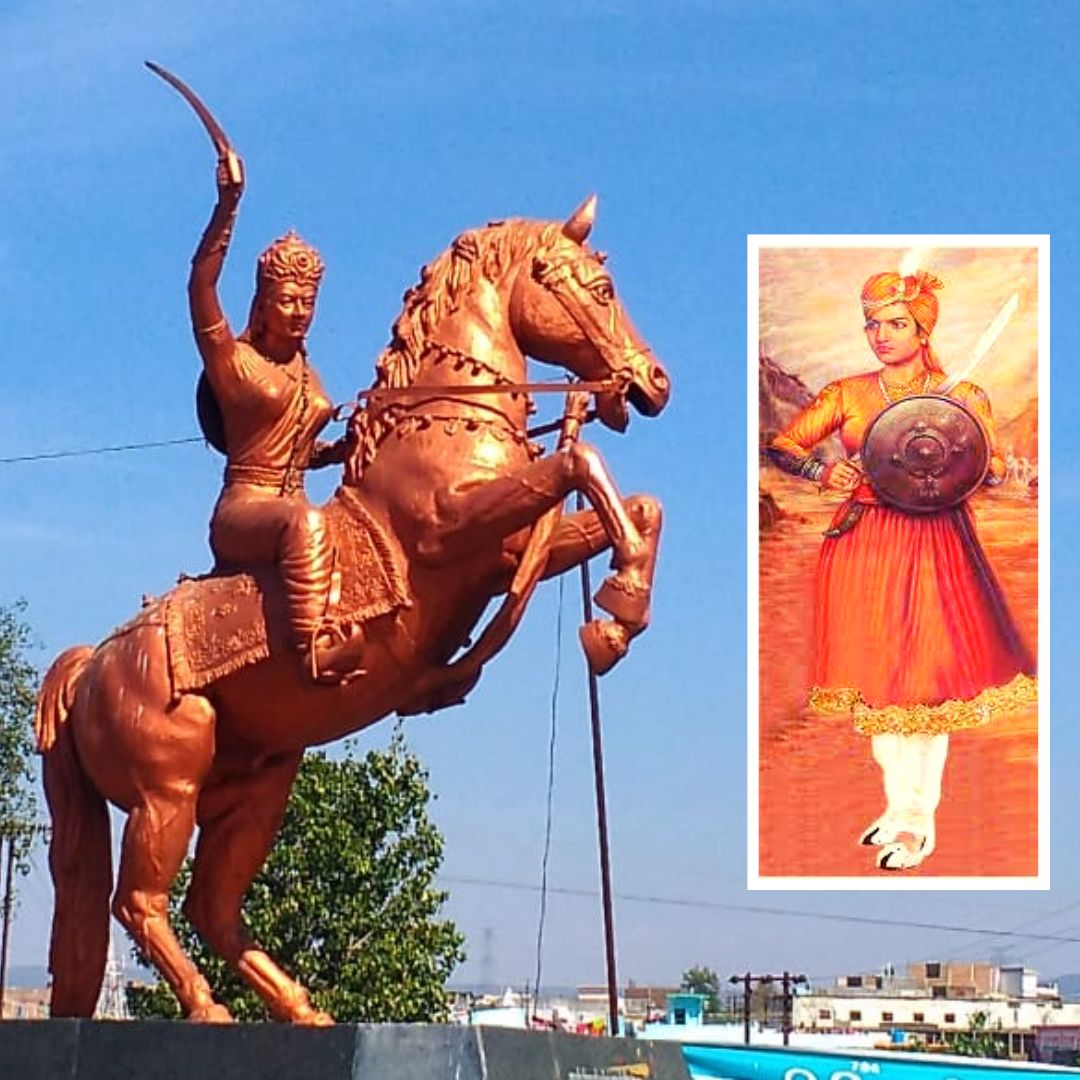
Image Credit- Amrit Mahotsav, MP Tourism
Rani Avantibai: Warrior Of Freedom Struggle Who Chose To Sacrifice Her Life Instead Of Bowing To Britishers
Writer: Simran Jeet
She is a a dedicated and an optimistic person who believes in learning from experience.
Madhya Pradesh, 14 Aug 2022 7:14 AM GMT | Updated 14 Aug 2022 7:33 AM GMT
Editor : Shiva Chaudhary |
A post-graduate in Journalism and Mass Communication with relevant skills, specialising in content editing & writing. I believe in the precise dissemination of information based on facts to the public.
Creatives : Shiva Chaudhary
A post-graduate in Journalism and Mass Communication with relevant skills, specialising in content editing & writing. I believe in the precise dissemination of information based on facts to the public.
Rani Avantibai is honoured as a warrior queen and is a significant, inspirational figure in the history of the Indian freedom struggle. The 1857 war of Independence witnessed her steadfast loyalty toward her people and throne.
Rani Avantibai, a warrior queen, was born on August 16, 1831, into a Zamindar Lodhi-Rajput family. Since her childhood, she was known to have been extremely independent and well trained in military strategy and was proficient in archery, horse-riding and wielding a sword.
Her political and combat education was strong enough to make her a suitable candidate for being a ruler. Blessed with a charismatic personality, she was accepted as a suitable bride and married at a young age to Vikramaditya Lodhi of Ramgarh (Madhya Pradesh).
Replacement Of The Lodi Rule
Avantibai assumed her husband's throne after he fell sick, which the British strongly disapproved. Moreover, the Britishers refused to consider Avantibai's sons (Aman Singh and Sher Singh) legitimate heirs to the throne as they were minors.
The ambiguous annexation policy of Doctrine of Lapse, commonly associated with Lord Dalhousie, allowed Britishers to install their administration to replace the Lodhi rule. The Policy permitted the East India Company to establish its authority in any princely state of India if the ruler was incompetent or died without a male heir, thus taking away Indian rulers' rights to appoint successors.
Role In The 1857 War
By May 1857, when news about the rifles using cow and pig fat began to make rounds in Meerut and Delhi, villages started preparing for a rebellion. Rani Avantibai decided to send her message through handwritten notes urging people to pick up arms and fight if they had any semblance of loyalty or honour towards their country rather than sit timidly in their homes.
Determined to wipe out her rule, the British attacked Ramgarh with brutal force setting the region on fire. Rani Avantibai was left with no choice but to seek safety in the hilly forests of Devharigarh.
The queen sustained for an extended time utilising guerrilla warfare techniques; however, a fighting spirit was not enough against sheer battle power, as per Wikipedia.
Eventually, she was trapped by British troops, who had surrounded Ramgarh. Knowing that her defeat was imminent, she found it better to sacrifice her life than to be taken at the hands of the enemy.
 All section
All section













